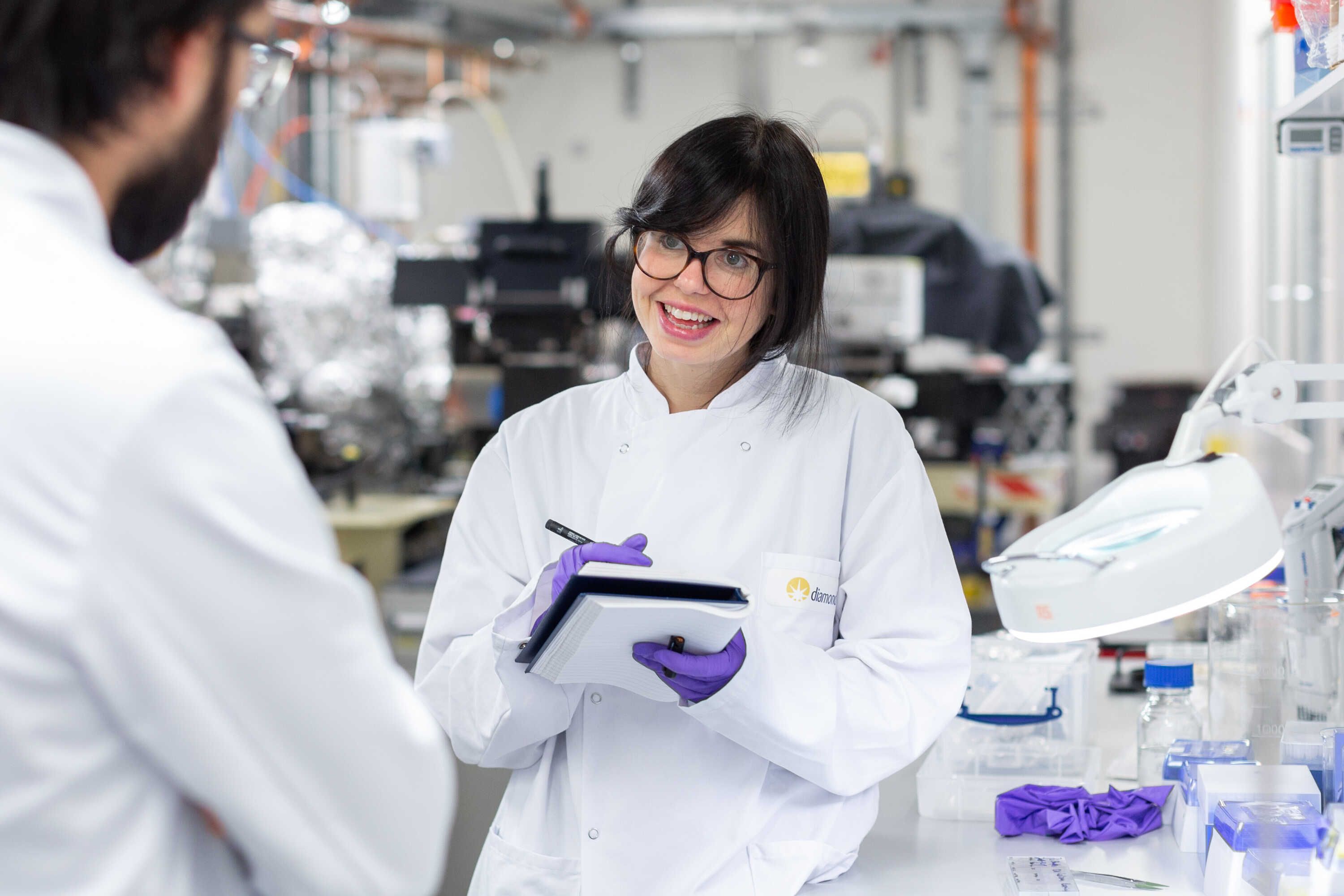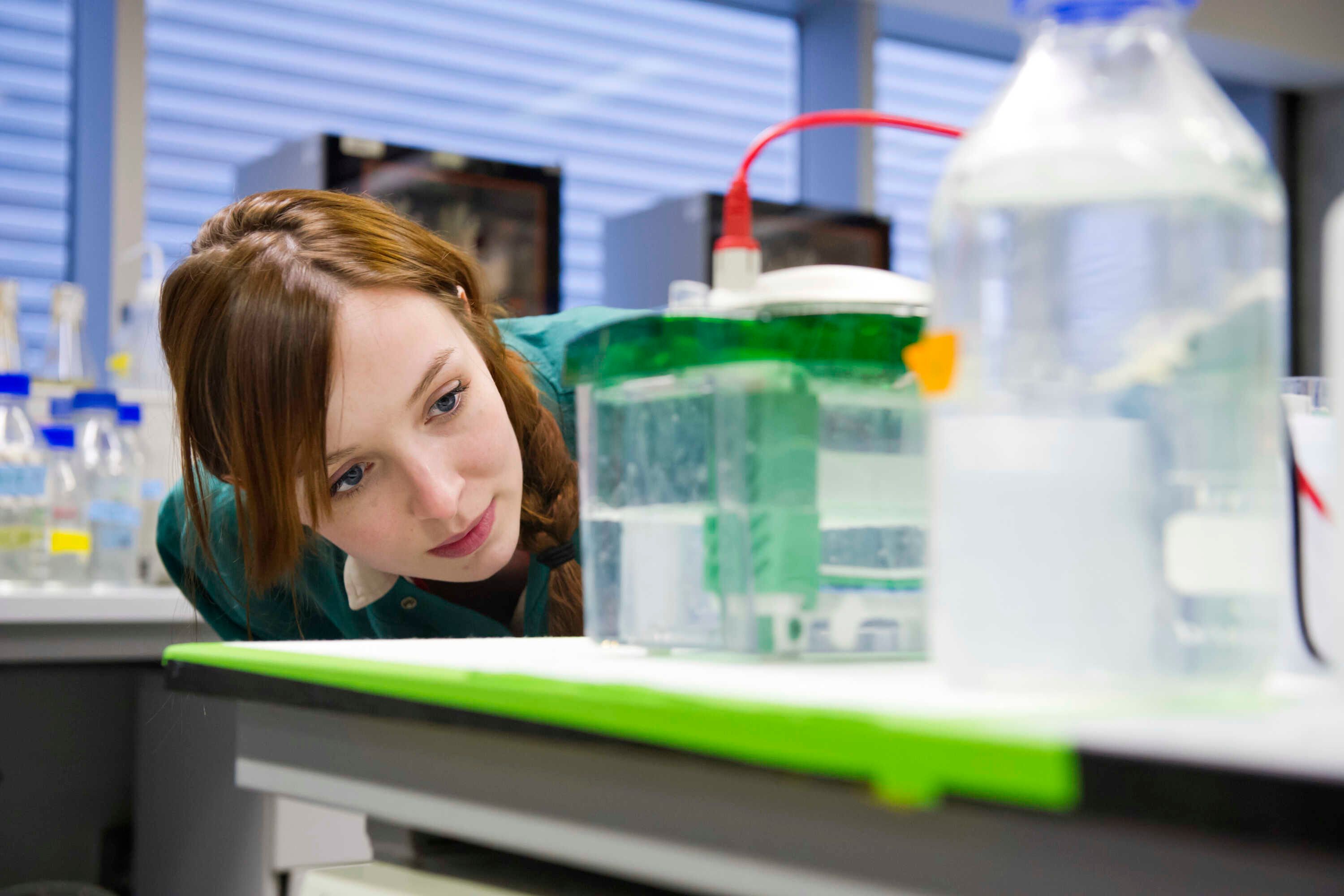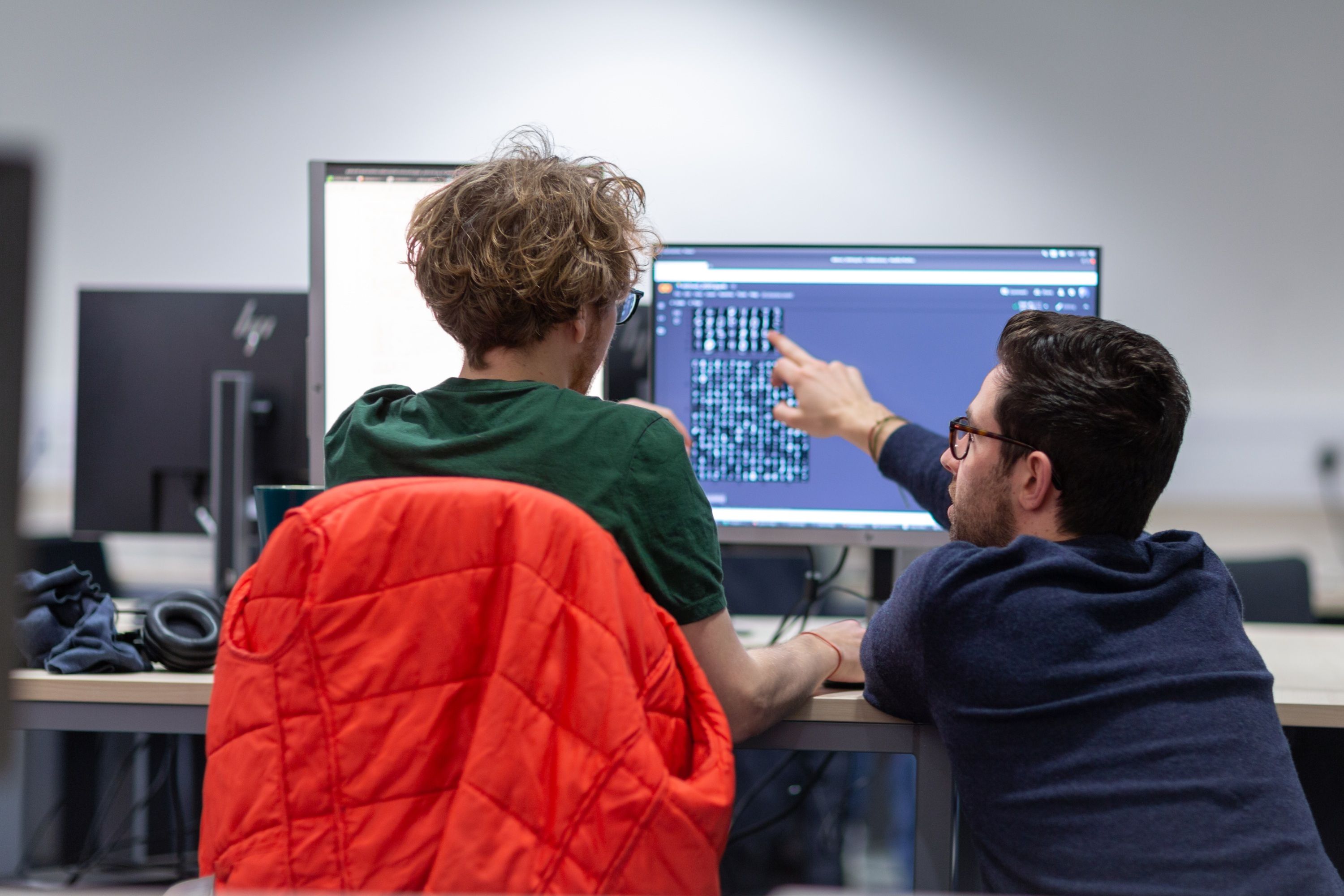
Three reasons to study for a masters at Imperial
Choosing where to study for a postgraduate qualification is a decision that will help define your career opportunities and transform your future. Here are three reasons why you should study for a masters in physics at Imperial College London.
Become part of a huge, stimulating physics community
As a masters student at Imperial, you’ll join one of the largest physics departments in the UK, and become part of a vibrant, intellectual peer-to-peer community of nearly 1,500 students and 170 academic and research staff, located in the heart of London.
At Imperial we’re keen to break down barriers and create a fluid environment where students feel part of the fabric of our Department. Throughout your masters year, you’ll get to know other students and staff from across our physics community by attending external speaker events and Department socials, and through student-run societies like PhySoc and our Optical Society.
Great for employability
Our programmes range from fundamental to applied, and the careers our graduates go into are just as diverse. 98.5 per cent of our masters graduates go on to highly skilled employment or a PhD according to Imperial’s Graduate Outcomes Survey (2020).
Our masters programmes are a great preparation for a research career, and in 2020, three-quarters of our graduates went on to further study. At Imperial you’ll undertake a major research project and work on original research which you’ll present during a viva, giving you a ‘mini-PhD’ experience. You’ll choose your own topic and supervisor, and work in one of our nine research groups, building your teamworking, problem-solving skills and presentation skills – preparing you for a future role in a research lab.
Alternatively, you might decide to pursue a career in industry – particularly if you opt for one of our programmes with a large practical, lab-based component such as the Optics and Photonics MSc. Graduates from our physics masters programmes have gone on to a range of roles such as:
- Analyst
- Assistant engineer
- Contextual interpreter
- Radio frequency engineer
- Research engineer
- Science director
- Software dDeveloper
- Transformation engineer
in organisations including:
- Alternative Energies and Atomic Energy Commission
- American Hardwood Export Council
- Chinese Academy of Sciences
- Chong Hwa Independent High School, Kuala Lumpur
- Deloitte
- Edinburgh Instruments
- European Synchrotron Radiation Facility
- Expleo
- Huawei
- Qutronix
- Thales Group
Programmes reflecting our world-leading research
At Imperial we don’t offer ‘off-the-peg’ masters courses: our programmes have evolved from the research strengths of the Department. We cover the whole breadth of physics – from fundamental questions aboutof the universe (such as quantum fields and fundamental forces) to applied topics (such as optics and photonics) – and this is reflected in the range of masters programmes we offer.
As a masters student in our Department of Physics you’ll learn from the people who are leading the research agenda globally, such as:
- Head of Department Professor Michelle Dougherty, Principal Investigator on two major space missions: the NASA Cassini spacecraft and the ESA JUICE spacecraft
- Professor Sir John Pendry, who invented a real ‘invisibility cloak’ using research he initiated in plasmonics and nanophotonics
- The late Sir Tom Kibble, whose theory group has pioneered research in fundamental forces, and is best known for its work on Higgs Boson
- Professor Ben Sauer, leader of our Controlled Quantum Dynamics group which has launched one of the world’s leading quantum computer start-up companies, based in California.

